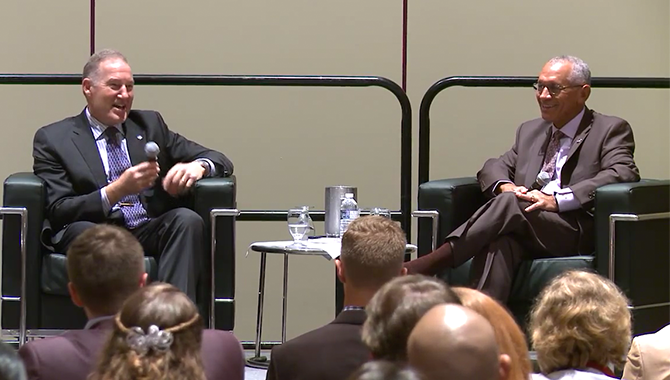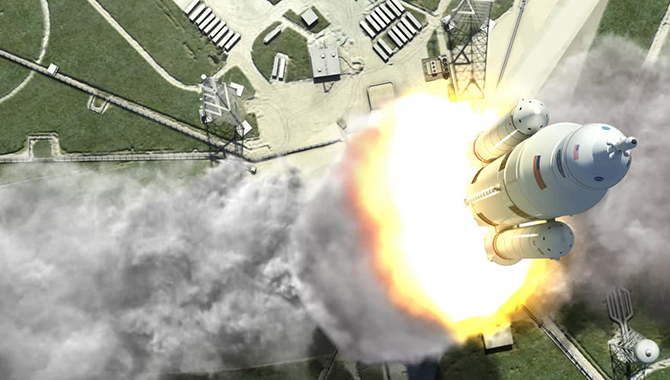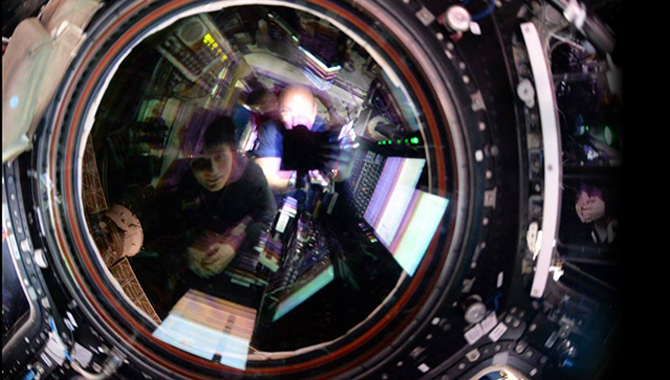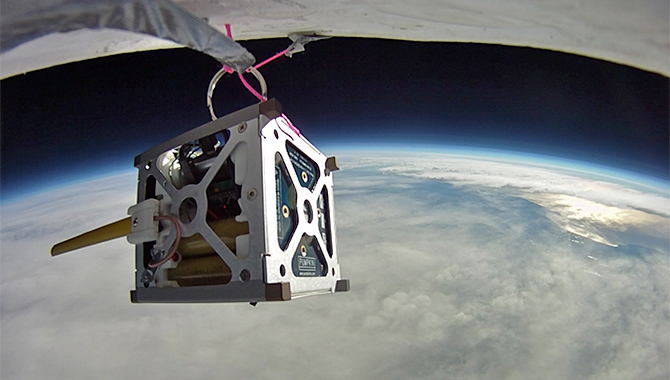
At the 2014 International Astronautical Congress (IAC), Charlie Bolden and Walter Natynczyk shared learnings with young professionals in the global space community.
NASA Administrator Bolden and then-President of the Canadian Space Agency Natynczyk sat down with NASA Chief Knowledge Officer Ed Hoffman for a special Masters with Masters session with young professionals who were attending the IAC in Toronto, Canada. Perhaps not surprisingly, the conversation turned to the importance of international collaboration. More surprising, however, was the focus that both leaders gave to the critical role of relationships in building a strong future for space organizations.
“When we talk about relationships in space, because the risks are so high, because it’s such an adverse environment, it requires absolute trust and confidence,” said Natynczyk. “That’s why space is so important to this community. That’s why all of you are here in this room, no matter the fact that you came from so many different countries, you are sharing an experience here that we hope will result in a long-term relationship built upon trust and confidence.”
“If you’re not able to establish at least an understanding of who the other person is, things don’t work out,” Bolden agreed.
Both men emphasized that their role as leaders is to enable international collaboration by helping foster relationships throughout their agencies.
“I’m not the action guy. My job is to facilitate the success of the people who work with me and with whom I work,” said Bolden. “Take care of your people and they will take care of you. If you’re out for yourself and that’s what your focus is, they will know it and they will know it very quickly. The trust that Walt and I talk about—it won’t happen because it’s really hard to trust someone when all you see in every action is, ‘How am I going to progress? How am I going to push myself forward?’ and not thinking about the rest of the team. So my job as NASA Administrator is really to try to facilitate the success of my team.”
Part of establishing trust relationships, they stated, is listening to others—even when what they say is hard to hear.
“I am a big person on diversity and inclusion. The inclusion part is the most important part. If you ask people for input and you don’t accept it, they won’t respond very many times, so you’ve got to be open to accepting whatever it is that they say when you ask for it,” said Bolden.
“Demonstrate that you’re listening because if you set that climate, if you set the environment, people will come forward. And they want to, because what I’ve found is all the good ideas that come from within the organization, rarely are they top down. They’re bottom up,” said Natynczyk.
Young professionals in the audience asked Bolden and Natynczyk about a range of topics, from constraints on international collaboration due to export controls to the challenges of maintaining a positive workforce during difficult economic times. Both men kept coming back to one thing: people. Their role as agency leaders is to make it possible for those who work for them to lead the programs, projects, and other initiatives that expand the frontiers of the space industry. But people make mistakes, and Bolden and Natynczyk were asked how they’ve addressed their own mistakes in the past.
“I think people expect you to make mistakes, first of all. The mistake that people do not expect you to make is a violation of your integrity,” said Bolden.
“The thing about senior leadership is you never have perfect information,” said Natynczyk. “You wish you had perfect information, others assume you have perfect information. You never have perfect information. You don’t, but you’ve got to make a call based on the information that you have.”
When asked how space exploration supports global cooperation, both men pointed to the International Space Station (ISS).
“I always call the ISS a space-born United Nations,” said Bolden. “And I think what we can do is make sure that that partnership remains whole and viable and functioning because it is one of the best examples that we have today about how the world should be and how it can be when people are willing to put themselves second and work on a common goal for the good of humanity.”
“[T]he International Space Station reinforces the extraordinary value of long-term relationships; that global situations come and go, but the relationships built over time endure. And we’ve got to reinforce those long-term relationships,” said Natynczyk.
Relationships also lie at the heart of learning, Natynczyk said. “A lesson observed is not a lesson learned unless it’s changed behavior…And you’ve got to look to the success of the team and put the organization ahead of you in order to actually learn from that lesson.”
Continual learning is a key criterion for successful leadership, the men agreed. “I learned a long time ago there’s no such thing as a dumb question,” said Bolden. “I am the dumb question asker at NASA Headquarters. And it’s not because I’m trying to catch anybody or anything, it’s just because I don’t know and I’m constantly trying to enrich myself or refresh myself or learn something new. So you cannot learn if you’re not willing to ask questions.”
“You [have] to continually learn and recognize that you will not know everything. And you’ve got to be comfortable with imperfect information. The fact is, the higher you go up into the organization’s hierarchy, you get closer to the peak of this organization, the less you’ll know,” said Natynczyk. That, he explained, is why relationships are so critical. “[Y]ou will put your absolute trust into those who work for you and recognize that you can only see a little bit of what they do.”
View this Masters with Masters event on the APPEL YouTube channel.
To see previous Masters with Masters videos, please visit the APPEL YouTube channel.
Learn more about knowledge sharing at NASA.









